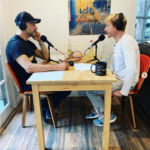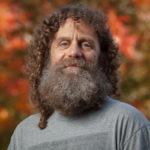
#77 – AMA #2 with sleep expert, Matthew Walker, Ph.D.: short sleep mutants, optimal sleep environment, sleep apnea, & rapid fire questions
Check out more content with sleep expert, Matthew Walker, Ph.D.: (April 1, 2019) Part I of III: Dangers of poor…

#58 – AMA with sleep expert, Matthew Walker, Ph.D.: Strategies for sleeping more, sleeping better, and avoiding things that are disrupting sleep
“[Sleep] is like that master volume button on a mixing deck that you see in the studio. You can manipulate each one of those dials, or you can go to the far left and just move that one dial…and all of the other levers seem to move with it.” — Matthew Walker

#56 – Jocko Willink, retired Navy SEAL, Part II of II: Sleep, fasting, raising kids, discipline, taking ownership, and the impact of war
“Leading a family is the same way you lead an organization or lead a team. If you bark orders at your team, your team won’t like you, they won’t respect you, and they’re not going to carry out those orders with any sort of commitment.” — Jocko Willink

The Sound of Silence
I would posit you don’t need to be a fan of Disturbed or Simon & Garfunkel (though I love both)…

#51 – Robert Sapolsky, Ph.D.: The pervasive effect of stress – is it killing you?
“The [stress response] system has been serving vertebrates, doing a lot of help for them for an awful long time, and it’s only been a very recent modification to instead secrete [cortisol] in response to thinking about taxes.” —Robert Sapolsky

#47 – Matthew Walker, Ph.D., on sleep – Part I of III: Dangers of poor sleep, Alzheimer’s risk, mental health, memory consolidation, and more
“I think that sleep may be one of the most significant lifestyle factors that determines your risk ratio for Alzheimer’s disease.” — Matthew Walker





